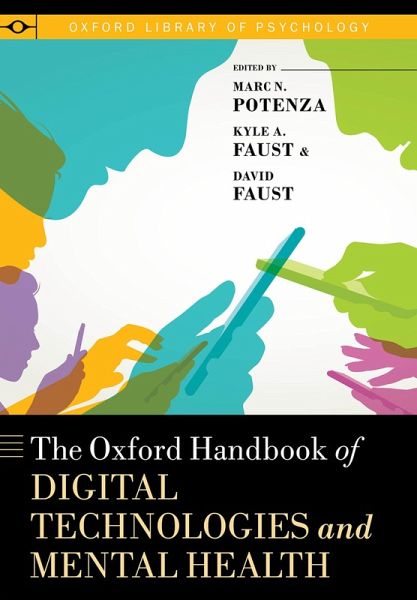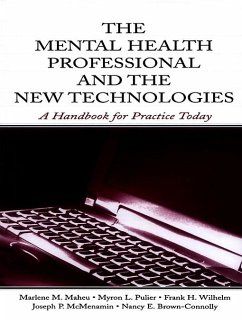
The Oxford Handbook of Digital Technologies and Mental Health (eBook, ePUB)
Versandkostenfrei!
Sofort per Download lieferbar
86,95 €
inkl. MwSt.
Weitere Ausgaben:

PAYBACK Punkte
43 °P sammeln!
Digital technology use, whether on smartphones, tablets, laptops, or other devices, is prevalent across cultures. Certain types and patterns of digital technology use have been associated with mental health concerns, but these technologies also have the potential to improve mental health through the gathering of information, by targeting interventions, and through delivery of care to remote areas. The Oxford Handbook of Digital Technologies and Mental Health provides a comprehensive and authoritative review of the relationships between mental health and digital technology use, including how su...
Digital technology use, whether on smartphones, tablets, laptops, or other devices, is prevalent across cultures. Certain types and patterns of digital technology use have been associated with mental health concerns, but these technologies also have the potential to improve mental health through the gathering of information, by targeting interventions, and through delivery of care to remote areas. The Oxford Handbook of Digital Technologies and Mental Health provides a comprehensive and authoritative review of the relationships between mental health and digital technology use, including how such technologies may be harnessed to improve mental health. Understanding the positive and negative correlates of the use of digital technologies has significant personal and public health implications, and as such this volume explores in unparalleled depth the historical and cultural contexts in which technology use has evolved; conceptual issues surrounding digital technologies; potential positive and potential negative impacts of such use; treatment, assessment, and legal considerations around digital technologies and mental health; technology use in specific populations; the use of digital technologies to treat psychosocial disorders; and the treatment of problematic internet use and gaming. With chapters contributed by leading scientists from around the world, this Handbook will be of interest to those in medical and university settings, students and clinicians, and policymakers.
Dieser Download kann aus rechtlichen Gründen nur mit Rechnungsadresse in A, B, BG, CY, CZ, D, DK, EW, E, FIN, F, GR, HR, H, IRL, I, LT, L, LR, M, NL, PL, P, R, S, SLO, SK ausgeliefert werden.













